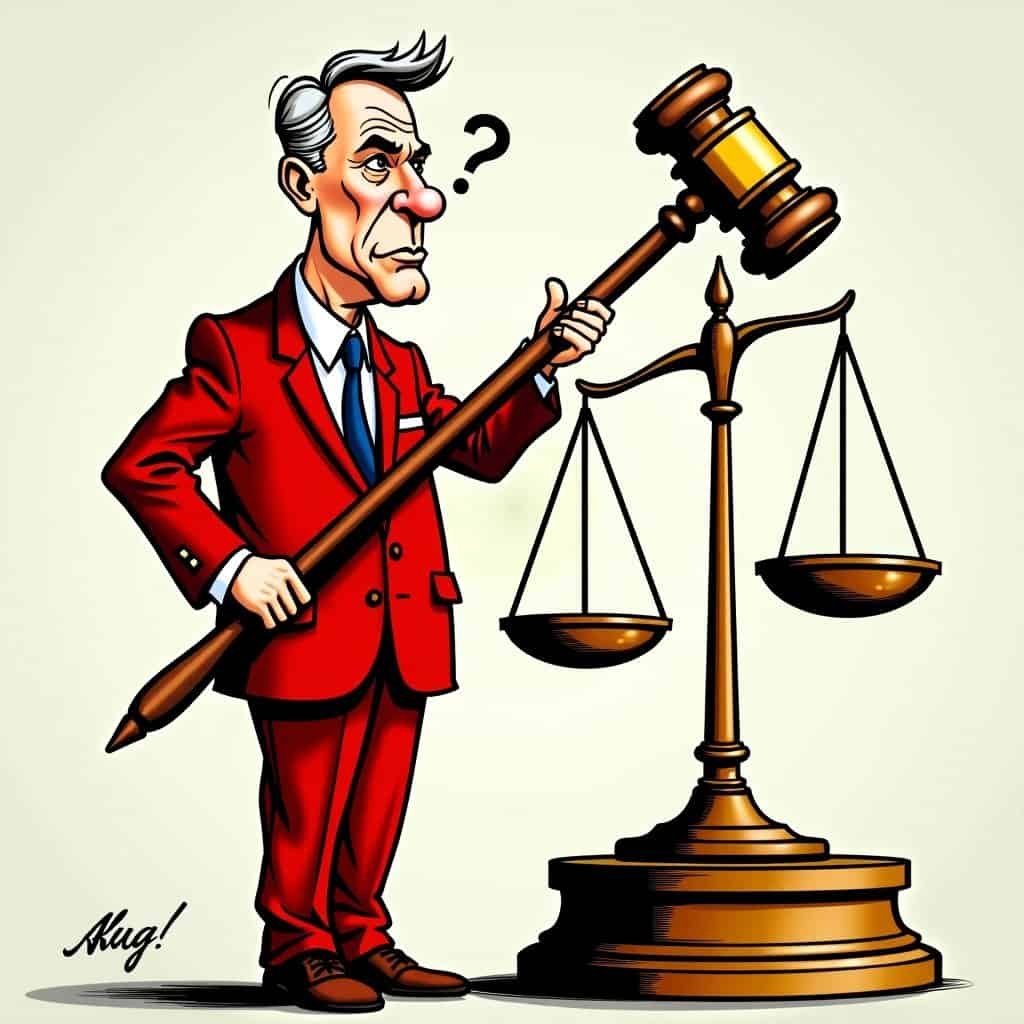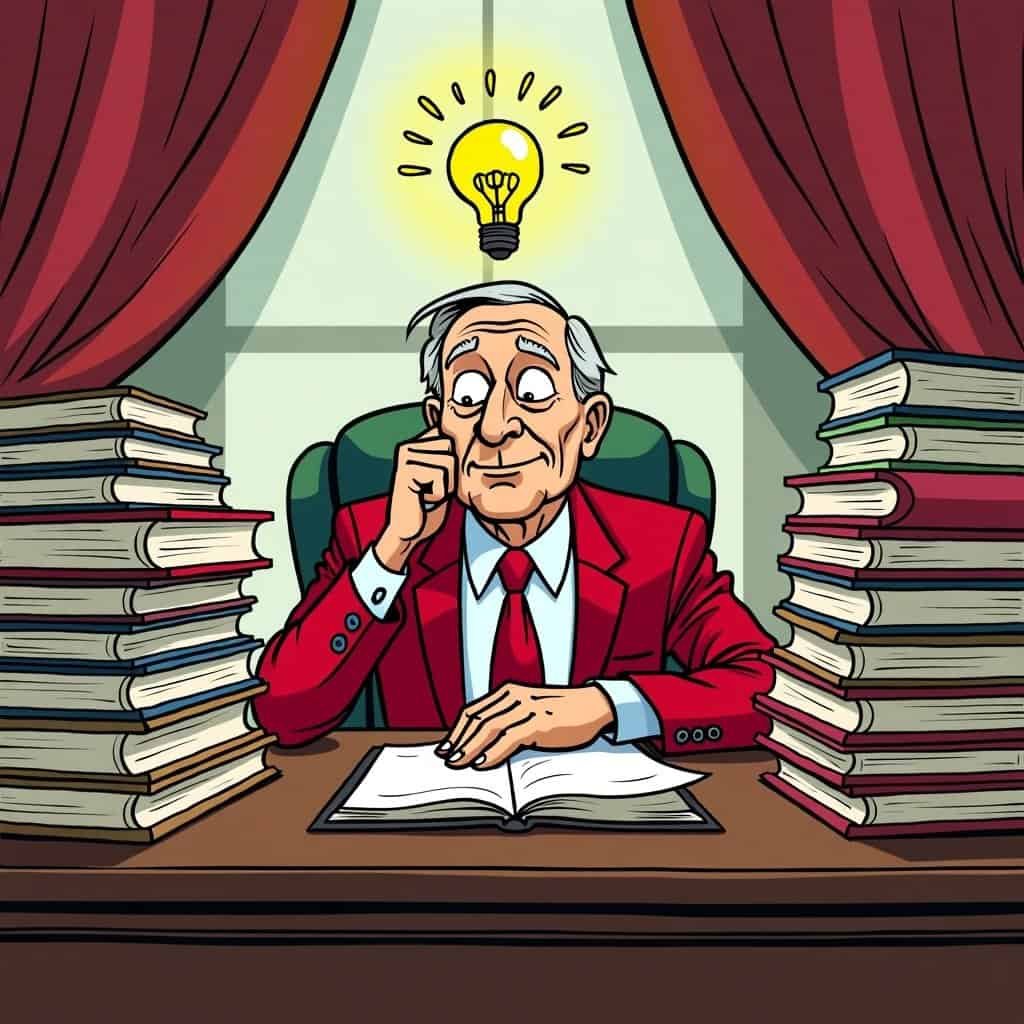William F. Buckley Jr., the master of wordplay, could outmaneuver you with his vocabulary alone. If there was a pantheon for conservative humor, he’d be the founding figure. One topic that never failed to ignite his verbose enthusiasm was judicial activism. Buckley Jr. didn’t just criticize it; he treated it like a rash on the American legal system—irritating, spreading, and best kept at bay.
So, what’s judicial activism? It’s when judges decide to play legislative Twister, contorting the law into shapes the original lawmakers never imagined. It’s the kind of thing that sends conservatives into a tizzy, like a squirrel spotting a nut. And Buckley Jr.? He expressed his disapproval with the same gusto he had for unnecessarily lengthy words.
In “God and Man at Yale,” Buckley Jr. picked apart the issue with surgical precision. Judicial activism, he contended, was nothing short of a power grab, a slap in the face to democracy, and a severe case of academic snobbery gone wild. Picture someone signing up for a carpentry class, only to find the teacher leading a session on interpretive dance instead. That’s about how far activist judges stray from their original purpose when they start making laws from the bench.
Buckley’s Perspective on Judicial Activism
“The Constitution is not a living organism. It’s a legal document that says what it says and doesn’t say what it doesn’t say.” – Antonin Scalia
Now, here’s where it gets spicy! Liberals and progressives might argue that this judicial creativity (or gymnastics) is necessary to right historical wrongs and ensure justice. And sure, they can have their say. But conservatives like Buckley Jr. see it differently. They don’t want the Constitution to be a ‘living, breathing document.’ They prefer it as a well-preserved historical artifact, like the Declaration of Independence, minus Nicolas Cage trying to swipe it every other week.
Conservative Values and the Law
Conservatism cherishes the idea of law and order—laws should be crafted by legislators, those brave souls we elect to fill seats in Congress, not by a group of robe-wearing individuals deciding they know what’s best for everyone. It’s like hiring a chef and finding them rewiring your house instead. Not on Buckley Jr.’s watch!
Judicial Interpretation: Classic Rock vs. Modern Pop
- Classic Rock (Original Intent): Tried, true, with a solid guitar solo—a reliable foundation.
- Modern Pop (Progressive Reinterpretation): Subject to fashion whims, changing faster than a teenager’s social media obsession.
Buckley Jr. viewed the Constitution’s framework as a shield against modern excess. He wasn’t about to let it be twisted like song lyrics—open to countless interpretations, depending on which way the political winds blew. That’s why he argued for judicial restraint. Judges should ‘call balls and strikes,’ not rewrite the rulebook mid-game.
The Economic Perspective
This viewpoint extends to economics, where conservatives favor minimal government interference and focus on free market principles. It’s a belief in private investment’s power to drive growth and innovation rather than relying on government redistribution that leads to inefficiency and economic sluggishness. Think of it this way—we don’t want our economy run by folks who think basic math is subjective. We want clarity, consistency, and less interpretive dance!
The liberal or progressive alternative emphasizes wealth redistribution through higher taxes and social programs, often at the cost of economic vitality. They mistakenly believe more government is the solution, but in doing so, they hamper economic growth and opportunity. It’s like tying weights to a runner’s ankles and then yelling, ‘Move it!’
Buckley’s Understanding
Buckley Jr. recognized that judicial activism, much like misguided economic policies, strays from core principles designed to safeguard individual freedom and foster prosperity. It might seem appealing to some, but it ultimately leads down a slippery slope where judges and bureaucrats wield power far beyond their original mandate. This results in less freedom and more dependency—it’s a real-world example of breaking something to ‘fix’ it.
So, the next time someone praises judicial activism, channel your inner William F. Buckley Jr. and offer them a witty, conservatively-rooted critique. Because at the end of the day, preserving the Constitution—as is and without the “interpretive dance”—isn’t just the conservative approach. It’s the right approach.
Table of Contents
- Buckley’s Perspective on Judicial Activism
- Conservative Values and the Law
- The Economic Perspective
- Buckley’s Understanding






